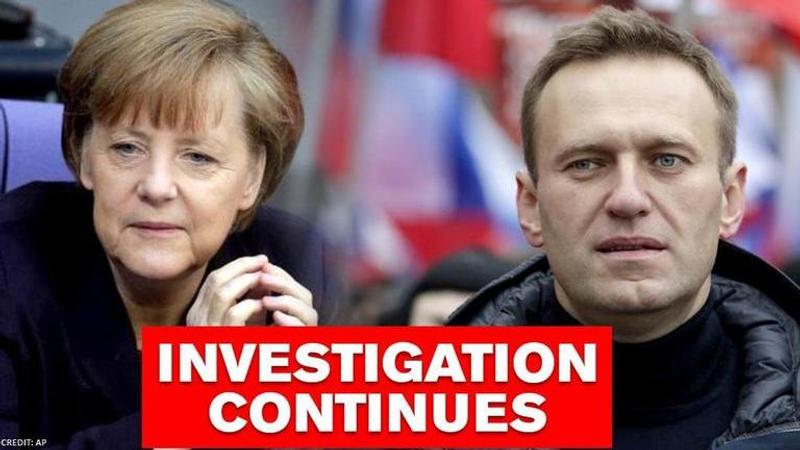Published 07:01 IST, September 19th 2020
Germany says Chemical Weapon watchdog still investigating Alexei Navalny's case
Germany's Foreign Ministry spokeswoman Maria Adebahr informed on Friday, September 18 that the OPCW is still investigating Russian critic Alexei Navalny's case.

Germany's Foreign Ministry spokeswoman Maria Adebahr informed on Friday, September 18 that the Organisation for the Prohibition of Chemical Weapons (OPCW) is still investigating Russian critic Alexei Navalny's case.
Navalny, a staunch critic of Russian President Vladimir Putin, fell sick under mysterious circumstances on a flight back to Moscow from Siberia on Aug 20. He was rushed to a hospital in the Siberian city of Omsk after the plane made an emergency landing.
Investigation on Navalny case continues
At a briefing, Adebahr said, “As far as we know, the OPCW investigation continues. We have not had the results yet”. Earlier this week, Navalny's official Instagram account said that there were traces of Novichok on bottles from his room in the Xander Hotel.
Spokesman for the German government, Steffen Seibert said that Berlin has taken note of the message. According to reports, Seibert said, “I would like to refer you to Navalny's team for all questions on this video. We have said all we want to say in press releases and statements, including those of the chancellor”.
Alexei Navalny was put into an artificial coma and was moved to Germany after much debate over his transfer. He had remained in an induced coma until September 7 when doctors treating him informed that his condition has improved. While Russin doctors had denied finding any poisonous substance in Navalny's blood, Germany doctors later confirmed the Putin critic had been poisoned with a Soviet-era nerve agent Novichok.
Russian authorities had then dismissed allegations of a state-sponsored attack on Navalny and demanded more evidence in order to start a criminal investigation into the case.
In a recent development, Russia accused opposition leader Alexie Navalny’s aides of taking potential evidence out of the country and said that Kremlin’s ability to probe the suspected poisoning was ‘limited’. While speaking to international media reporters, Russian President Vladimir Putin’s spokesperson, Dmitry Peskov, said that Moscow’s hands were tied because Germany has not yet shared its findings with the Russian authorities.
While four German laboratories that tested Navalny's samples confirmed that he was poisoned, Peskov said that the bottle, ‘if it existed’, has been taken somewhere. He added that what has become a ‘piece of evidence’ proving poisoning has unfortunately been taken out. Peskov even went on to cast a doubt on Germany’s findings, saying that it would not be possible to take a bottle with traces of a nerve agent out of the country because that person would simply ‘have no time’ to do that due to the toxicity of the substance.
(Image Credits: AP)
Updated 07:01 IST, September 19th 2020




